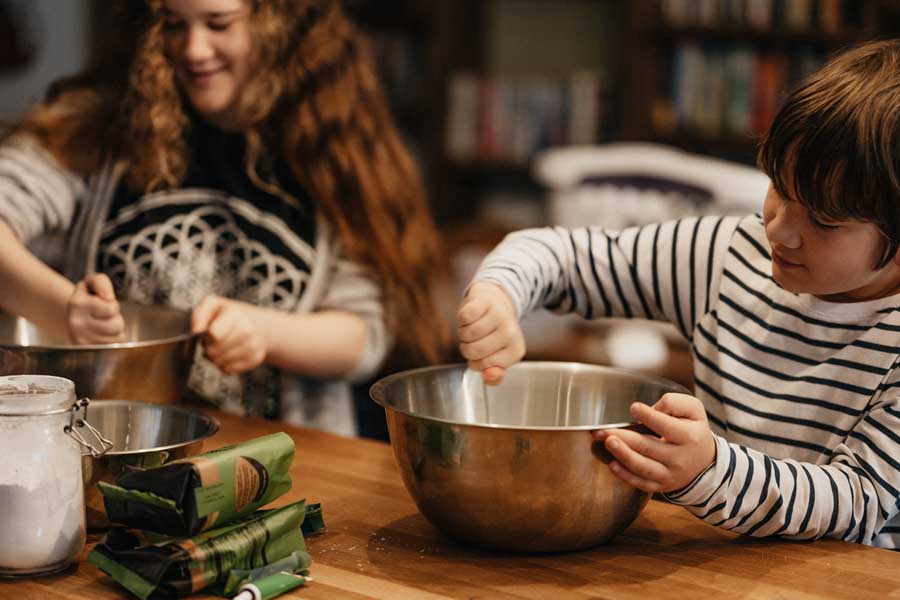Punching holes in the wall. Breaking and throwing things. Smashing your car’s windshield. Most of us never expect to face these behaviors from our children, but it happens all too often with defiant children and teens.
We see many kids who purposely destroy family property out of anger or for spiteful, vengeful reasons. And when it happens, the parents naturally feel a variety of hurtful and negative emotions.
It feels like a punch in the stomach. First comes the shock. How can my child be doing this to me? Anger, resentment, and guilt follow. What did I do wrong for my child to end up like this?
Why do kids destroy property? And what should we do about it?
Why Some Kids Resort to Destructive Behaviors
The fact is, most kids destroy property as a way of coping. They cannot cope with their frustrations and extreme feelings, and destroying property is a release of sorts. It makes them feel better, if only for a while.
But it is a terrible way to cope. It will lead to terrible consequences down the road as your child reaches adulthood. And it needs to be taken very seriously.
First, though, what leads them to this extreme place?
Destructive Behaviors and Low Frustration Tolerance
Children are generally known for having a low tolerance for frustration. They want things to go their way. When something happens that’s unexpected, disappointing, or requires the use of coping skills, many children have a difficult time handling such situations effectively. Some older children and teens still engage in tantrum behaviors long past the age we might expect. Why?
Most often, they don’t yet have the skills to handle the stress they’re experiencing. Physically releasing that energy helps them relieve their distress for the moment—even though it’s unpleasant for everyone around them. This is particularly true for children with an underlying condition such as ADHD, Oppositional Defiant Disorder (ODD), Asperger’s Syndrome, or a mood disorder.
The father of a 10-year-old diagnosed with ADHD once shared with me:
“My child has a very hard time when plans change. If we were going to the movies and we have to cancel because the road conditions are bad, she’ll start throwing her things around the room. She knows that’s not going to change the situation, but she just gets so angry when she’s disappointed that she explodes.”
Destructive Behaviors as Intimidation
Sometimes destructive behavior serves a different purpose: intimidation. A child may learn that by breaking things, punching holes in the wall, and behaving violently, they can frighten a parent into doing what they want.
One adolescent shared in therapy, “I know how to get ungrounded. I just start throwing things around the living room, and my mom tells me to get out of the house.”
Intimidating parents and family members may also give a child who’s feeling powerless a sense of control. It’s important to note that teens and older children who destroy property as part of an overall pattern of violating the rights of others (stealing, destruction, violence, breaking the law) have moved beyond the oppositional defiant disorder and into what psychologists call conduct disorder. (Please see the links at the end of this article for more information on ODD and conduct disorder.)
Parents Are a Child or Teen’s Outlet for Venting
Ever have a bad day and come home and picked an argument with a “safe person?” By safe, we mean someone who you know is not likely to reject you for your behavior, such as a spouse. Think about it, we often say things to our “safe” loved ones that would get us fired if we said those same things to a boss.
Our kids feel and do the same thing. When your child feels miserable, they probably won’t share that with the neighbor. They’re going to choose you because they know you love them and won’t reject them.
And with adolescents, things can escalate quickly. Before you know it, your child starts releasing their feelings physically, not just verbally.
Sneaky Destructive Behaviors
Often, the most frustrating situation is when a child behaves in a passive-aggressive or sneaky manner. They may break things out of revenge for the anger they’re feeling toward a parent.
You may find something of yours broken, perhaps something particularly sentimental or valuable. And you know your child did it, but you can’t prove it. Your child will deny until there’s no breath left in their body that they’re responsible. Yet your gut tells you they’re getting even for something they’re not willing or able to share with you.
What Can I Do About My Child’s Destructive Behavior?
It’s a good idea to wait until your child has calmed down before giving them the consequences.
Don’t say to your child, “Well, I hope you liked that vase you just broke because that just became your Christmas present!” That will likely escalate the situation and may lead to more destruction. Instead, wait it out, and when things are calmer, let them know how they will make amends for the damages.
Below are some ideas for consequences and how to approach the conversation.
Make Sure Your Child Knows the Rules
Tell your child that destroying property is not acceptable, not in your home, and not in the rest of the world either. Be clear in your expectations and what the consequences will be if your child does destroy your property. Be very clear that frustration is not an excuse for destroying property.
Suggest Alternative Behaviors
Talk with your child during a calm moment about things they can do instead of breaking things when they get upset and frustrated. If they need to release some physical energy, what are some non-destructive activities they can engage in? How can they learn some more effective ways to cope with their emotions?
One mom told us her 12-year-old daughter has a trampoline she jumps on to release pent-up energy. Another parent bought his child stress balls to squeeze when he’s feeling as if he’s going to lose control. The child was able to use these at school as well.
You can also let your child know they can count in their head until the negative feeling goes away. This will help them realize that, eventually, the feeling of frustration and anger does start to alleviate on its own, even if they don’t act on it. Your child can also use journaling, music, drawing, clay, or any other non-destructive activity they might be interested in to release feelings.
Determine if Natural Consequences Are Enough
Some children break their own things when they’re upset or angry. If your child gets angry, throws their phone, and it breaks, the natural consequence is that they no longer have a phone. Don’t buy them a new one. We call this a natural consequence, and it’s one of the best opportunities for your child to learn that their behavior matters.
Hold Your Child Accountable
No matter the reason for your child’s behavior, they need to be held accountable. If your teenager puts a hole in the wall that costs $100 to fix, how will you get that money back? You may offer opportunities for them to “work it off” around the house through chores.
If your child is genuinely remorseful for their behavior, they’ll be willing to work it off. If not, you’ll need to use more creative ways of recouping that money.
How much do you usually spend on school clothes at the mall? $200? Well, if your child isn’t willing to work off their debt, you may choose to give them $100 for their clothes instead. They’ll still get clothes, but maybe from a less expensive store. Wearing no-name jeans might make them uncomfortable enough to stop and think before they break things again in the future.
Take a minute to identify in what ways—even small ways—you spend money on your child. Think of things that aren’t necessities. Remember, there’s a difference between needs and wants. Your child needs to eat. But they want McDonald’s. As their parent, you’re obligated to provide them with food, but you’re not obligated to pay for McDonald’s. A peanut butter and jelly sandwich at home is sufficient.
When to Involve the Police
You will likely respond to your child’s destructive behavior based on several factors: your child’s age, the extent of damage that was done, and the frequency of your child’s destructive behavior. You may even choose to make a police report if the destruction of your property is severe enough or frequent enough.
What if your 12-year-old gets angry and breaks a lamp in the house? You may decide it’s sufficient to have him bring his lunch to school (rather than pay for hot lunches) until the object he broke is paid for.
But what if your 15-year-old smashes your car windshield, causing thousands of dollars in damage? You may decide it warrants a police report. And it may be something that requires such a report for insurance purposes.
Whether you involve the police is a decision only you can make as a parent. The benefit of making a report is that you’re starting a paper trail even if your child isn’t charged. This paper trail is necessary if your child does end up in the court system and you need written proof to back up your claims and get them the services they may need.
Suppose your child is at a point where they’re enraged, breaking things left and right, and they appear to be escalating to the point of being a danger to themselves or others. In that case, calling the police is appropriate as a safety precaution.
When in doubt, ask yourself, “What would I do if this was a neighbor’s kid?” If your neighbor’s 11-year-old-son causes minor damage to your property, and it’s the first offense, you might try to work something out with his parents. But what about for more serious issues? At what point would you consider the damage severe enough to make a police report? And how do you think a neighbor would respond to your child if they exhibited the same level of property damage while at their home?
Consequences Are a Learning Opportunity
Try to think of property destruction as a learning opportunity. Your job as a parent is to prepare your child for adult life. For adults, if you destroy property, there are consequences. Sometimes those consequences are financial and sometimes legal. You want to respond to your child’s destructive behavior in a way that leaves no doubt about what they will experience should they engage in this behavior outside your home.
One parent shared his reluctance to give consequences for his child’s destructive behavior:
“She was just really upset when she kicked a hole in the wall. She felt terrible afterward.”
Maybe so, and it’s okay if your child appears to have remorse for their actions, but they still must be held accountable. In her adult life, if that same young lady is in front of the judge after smashing in her ex-boyfriend’s taillights and says, “I’m really sorry, Your Honor. I was just so upset,” it’s not going to save her from consequences.
Keep your Own Emotions in Check
Parents often feel angry—even furious—when their child damages their property. That’s completely understandable. Property destruction is a personal violation, and it hurts to have a child treat something that we’ve worked hard for with such little respect. Nevertheless, remind yourself that this is about your child’s poor coping and not about you personally. Doing so will make you respond more effectively. And it will make you feel better.
One mom told me:
“I think I got so angry because while I watched my son kick a hole in the front door. I was thinking, ‘I’m going to have to pay for that.’ But I found that I became less angry once I made up my mind that I would hold him accountable for anything he purposely destroyed. It dawned on me that I could make him pay for things by controlling the money I usually chose to spend on him. As a result, I responded more calmly because I knew he would be held accountable. And, once he learned that he would pay for the damages, it only took a few times for him to choose to handle things differently.”
Remember, if you don’t hold your child responsible for their behavior, you’re not doing them any favors as they prepare for the real world. Holding your child responsible for damages to your property is done out of love and respect. The bottom line is that you are teaching healthy limits and boundaries when you hold them accountable.
Be Persistent and Patient
Put these suggestions into practice today, but be patient. Your child will need time and practice to improve their coping skills. So, as best you can, calmly and persistently hold your child accountable. These things can take time, but the effort is worth it.


